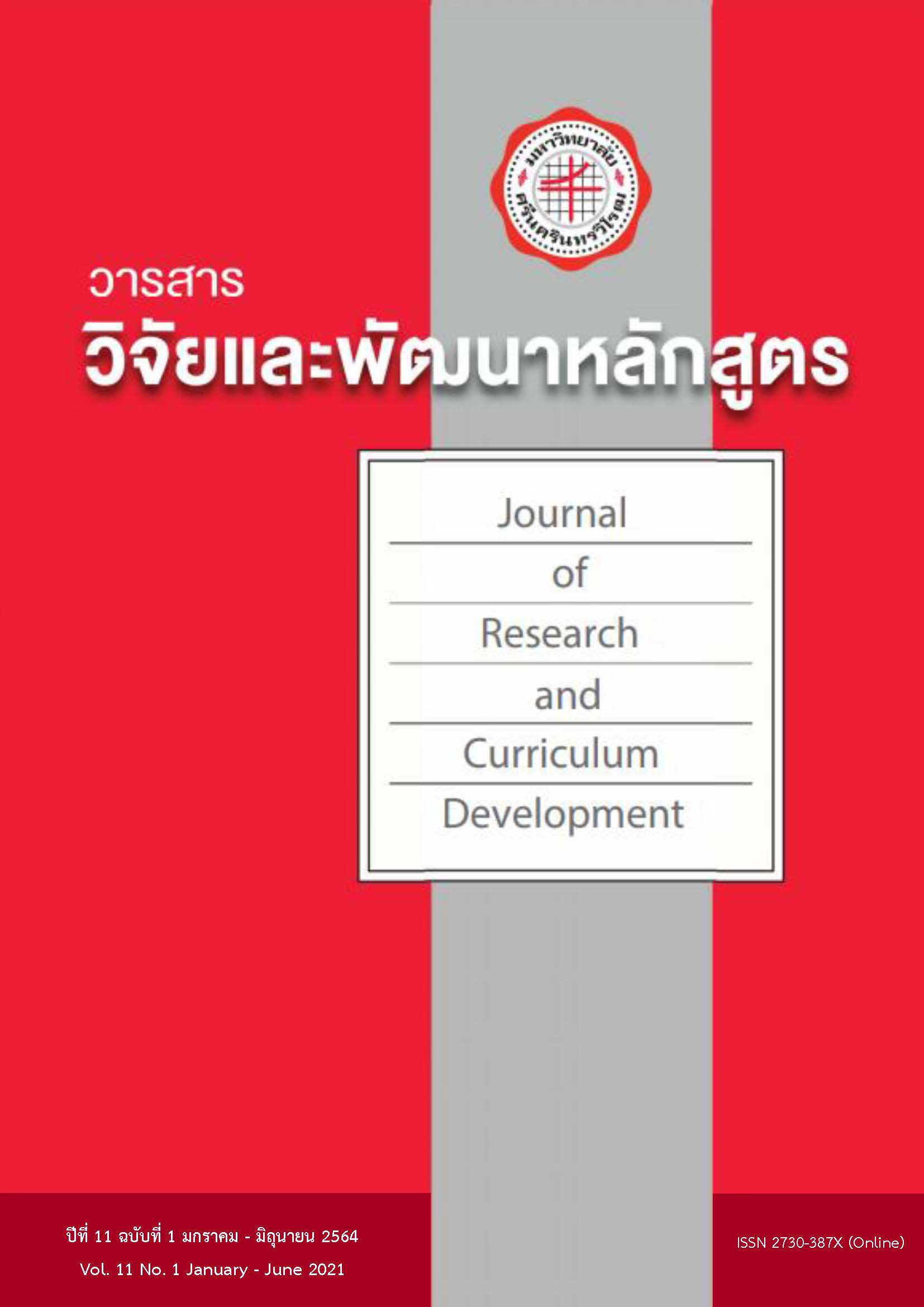รูปแบบการพัฒนาการจัดการศึกษาทางเลือกตามแนวพระราชดําริเศรษฐกิจพอเพียงเพื่อการพัฒนาที่ยั่งยืน
Keywords:
Alternative education, sufficiency economy, sustainable developmentAbstract
This research article is for the lessons learned from students who have graduated from schools that
provide alternative education in accordance with the Royal Initiative for Sustainable Development and have
applied the philosophy of sufficiency economy to their lifestyles and to develop a sustainable development
model. Organize an alternative study that will lead to the application of the sufficiency economy philosophy
in life. Using the research methodology of grounded theory Four schools from four regions were selected from the model school with alternative management of the Sufficiency Economy for Sustainable Development Royal Project. Data were collected using indept interviews and focus group interview using the semi-structure questionnaire from alumni, school administrators, teachers, parents, school committees and people in the community of 50 people were obtained by theoretical sampling. Data were analyzed in accordance with the research methodology of grounded theory.
The results of the research found that the good quality of the graduates of the schools that offer
alternative education management in accordance with the Royal Initiative for Sustainable Development who
have applied the sufficiency economy philosophy to their lives, there are 5: successful in sustainable living,
creative thinking successful person, successful in changing mode of production, successful in accumulating
capital and expanding business. and the success on the other side. The model for an alternative education
management that will lead to the application of the sufficiency economy philosophy to life. It was found that
schools had to provide alternative education along with the core curriculum and shifted the role of the teacher to the facilitator of learning management. It is an education that is not separated from individual and community problems. This is an interpolation condition that allows a person to apply knowledge when experiencing problems in life or in need of lifestyle modifications.
References
https://www.un.or.th/globalgoals/th/the-goals/.
มูลนิธิชัยพัฒนา. (2561). ปรัชญาของเศรษฐกิจพอเพียง. สืบค้นจาก
http://www.chaipat.or.th/site_content/34-13 /3579-2010-10-
08-05-24-39.html.
สุชาดา จักรพิสุทธิ์และคณะ. (2548).การศึกษาทางเลือก:โลกแห่งการเรียนรู้นอกโรงเรียน.กรุงเทพฯ.สำนักงาน
กองทุนสนับสนุนการวิจัย.
สำนักงานโครงการสมเด็จพระเทพรัตนราชสุดาฯ สยามบรมราชกุมารี. (2560). แผนพัฒนาเด็กและเยาวชนในถิ่น
ทุรกันดาร ตามพระราชดำริสมเด็จพระเทพรัตนราชสุดา ฯ สยามบรมราชกุมารี ฉบับที่ 5 พ.ศ. 2560 –2569.กรุงเทพ. แอคทีฟ ปรินท์ จำกัด.
สำนักงานเลขาธิการสภาการศึกษา. (2558ก). บทเรียนจากการจัดการเรียนรู้ตามแนวปรัชญาของเศรษฐกิจ
พอเพียงของโรงเรียนในโครงการตามพระราชดำริ สมเด็จพระเทพรัตนราชสุดาฯ สยามบรมราชกุมารี
(ฉบับสังเคราะห์). กรุงเทพฯ. พริกหวานกราฟฟิค.
สำนักงานเลขาธิการสภาการศึกษา. (2558ข). การจัดการศึกษาทางเลือกในประเทศไทย.กรุงเทพ. วี.ที.ซี. คอมมู
นิเคชั่น.
สำนักงานเลขาธิการสภาการศึกษา. (2560). แผนการจัดการศึกษาแห่งชาติ พ.ศ.2560-2579. กรุงเทพ. พริก
หวานกราฟิค จำกัด.
LaudanY.Aron. (2006). An Overview of Alternative Education. USA.U.S. Department of Labor,
Employment and Training Administration.
United nation. (1983). Report of the World Commission on Environment and Development:
Our Common Future. สืบค้นจาก http://mom.gov.af/Content/files/Bruntland_Report.pdf./.





